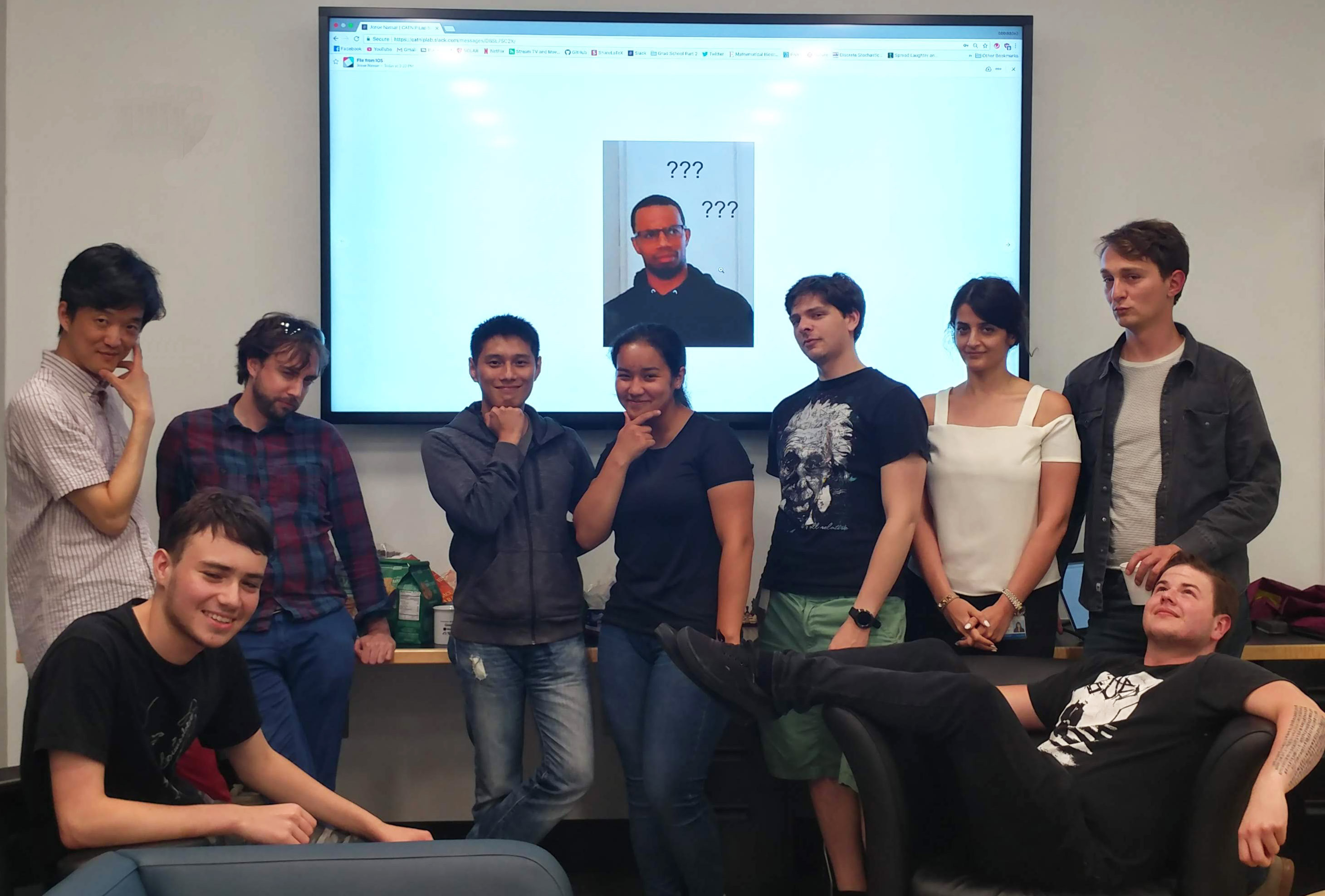I. Memming Park, Stony Brook’s 2019 Discovery Prize winner, built his first artificial neural network when he was in middle school. That long-held interest in how the brain works influenced his award-winning research titled, “Personalized Landscape of Unconsciousness.”
Memming Park (far left standing) and members of his research group and coma project team
Park, an Assistant Professor in the Department of Neurobiology & Behavior and a faculty member of the Institute for AI-Driven Discovery and Innovation, says his research, to understand the brains of coma patients using machine learning methods and neurotechnologies, stems from a spontaneous discussion with Dr. Charles Mikell, Stony Brook Medicine faculty. Mikell was already recording signals, with his own data analysis software, from human brains during surgeries he performed. A collaboration soon followed.
“We were interested in these brain implants for seizure treatments,” said Park. “They detect a certain pattern of activity in the brain and before the seizure comes, they will see it and stimulate the brain to stop the seizure.”
Recognizing the success of such devices for a variety of neurological diseases, and the fact that there’s no standard treatment for coma treatments, their attention focused on the question of whether a device implanted in a coma patient’s brain could be used to awaken them.
“I want to build a smart device, incorporating AI, to learn the optimal procedures for stimulation,” said Park. “We don't really understand how this [a patient coming out of a coma] is happening. I'm interested in the science part of this and using our technology and machine learning to help bring this forward.”
Because each patient is different, AI and machine learning are extremely important to Park’s research. A coma patient’s brain damage, or why they’re trapped in an unconscious state and how to help them awake, will be unique to that patient. “This process cannot be done by humans; it requires finding patterns within highly complex signals,” Park said. “We are designing our own machine learning tools to extract human understandable computation that's happening in the brain.”
Park’s Discovery Prize award of $200,000 will allow his team to take their current testing beyond simulations and in silico testing. The next stages will test their algorithms on a “mini-brain” (biological culture) or in animal studies to get ready for humans.
The ultimate goal for Park’s research is to prove that the algorithm and technology work in humans and are an effective treatment for waking up unconscious people. “It would be very nice if we could build a device that can improve a lot of people's lives,” he said.
About the Researcher
I. Memming Park joined the faculty of neurobiology and behavior at Stony Brook University in 2015. He is interested in how information is encoded as spatiotemporal patterns of neural activity, and processed to perform specific computations within and across brain areas. He runs the CATNIP Lab, a computational and statistical neuroscience group located at Stony Brook University.
About the Discovery Prize
The Discovery Prize was established in 2013 with a generous donation from the Stony Brook Foundation’s Board of Trustees as a way to advance pioneering scientific breakthroughs at a time when the primary source of support for basic research (i.e., the federal government) is dwindling.


